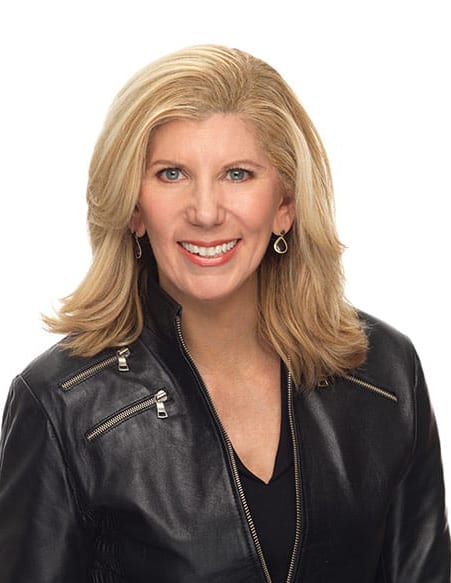As more than 30 heads of state and nearly 120 billionaires descend on Davos, Switzerland, for the World Economic Forum’s 50th Annual Meeting, the schedule is shaping up with some predictable themes and some that are newer to this Alpine landscape. As I return for my seventh Davos experience, I’m eager to participate in discussions about some of the issues that are capturing the world’s attention and others that will be in the near future.

Some of the themes that I predict will be taking center stage this week include:
Stakeholder capitalism over shareholder capitalism. The concept of stakeholder capitalism is not new – in fact, WEF founder Klaus Schwab proposed the model in the 1970s. The concept was pushed aside in favor of shareholder capitalism, which puts the interests of its investors before the needs of its employees, customers, suppliers, vendors, the environment and society at large. That model has come under intense scrutiny in recent years and now even leaders of the largest companies in the world are proposing a shift to a broader view of business success, as evidenced by the Business Roundtable’s redefinition of an organization’s purpose and BlackRock CEO Larry Fink’s influential annual letter. This year’s Annual Meeting theme of “Stakeholders for a Cohesive and Sustainable World” reflects this focus, as does the creation of a new Davos Manifesto, which defines the universal purpose of a company. At Ketchum, we regularly counsel clients who are evolving to or have fully embraced being a purpose-driven organization, and the most important advice we give is to ensure there is no gap between what your organization claims to be and what it actually is. So it will be interesting to see how businesses embrace this shift and whether they are paying attention to the “say-do gap.”
Climate change is impossible to ignore. At least it is in Davos. The World Economic Forum has instituted new sustainability measures and the Annual Meeting will be climate-neutral for the fourth straight year, but it hasn’t stopped the large group of activists we drove past on the way up the mountain who are marching for three days from Landquart to Davos to protest the lack of action by world leaders. Many of us also entered the town seeing a poignant message of “No Planet B” scrawled into the snow. With wildfires raging in Australia, there’s more emphasis on climate change at the Annual Meeting than any other topic this year. Last year Greta Thunberg took Davos by storm, showing no fear as she spoke on behalf of the world’s youth while admonishing politicians and business leaders for their lack of accountability. This year she is not alone – she will be joined by a contingent of other young climate change activists to make a plea to world leaders. Those activists include 15-year-old Autumn Peltier from Canada’s Wikwemikong First Nation, who advocates for clean water for indigenous people; Ayakha Melithafa, a 17-year-old South African who was inspired by water shortages in Cape Town to advocate for low-carbon development; Fionn Ferreira, an 18-year-old from Ireland who invented a new method of extracting microplastics from the water; and 19-year-old Melati Wijsen who convinced lawmakers to ban single-use plastics in her native Bali. These individuals were invited as part of a new group called the Teenage Changemakers, who are certain to make an impact on Davos this year and for years to come.
A focus on physical and mental health. Healthcare is a topic at every annual meeting, and this one is no exception. But aside from the expected conversations around areas like robotic medicine, cancer breakthroughs and increasing life expectancies, there is an increasing focus this year on mental health. Congress Center sessions like Protecting Mental Health in Youth, the Science of Addiction, and Leading a Mentally Healthy Organization are aimed at leading discussion about this often-stigmatized topic and tackling it with as much fervor as other medical conditions. Mental health is a key area of interest for us at Ketchum, with our London office leading the way developing an awareness program, including mental health first aid training among our leadership, onsite screenings and regular workshops.
Other items that are sure to make the news this week:
- All eyes will be on U.S. President Donald Trump Tuesday morning, who is opening the Annual Meeting with an address just hours before his impeachment trial begins in the Senate. His last address here in 2018 focused on his “America First” agenda, so it will be interesting to see how he will connect with this audience this year, particularly in light of recent geopolitical conflicts.
- In addition to political and business leaders, other famous faces including Sheryl Crow, Jason Derulo, will.i.am and Mark Ronson are here to educate, to advocate for causes they care about, and in some cases, simply to entertain. I’m attending an event tomorrow where Priyanka Chopra Jonas will discuss ways to tackle some of the world’s biggest challenges.
- Food sustainability is a new area of focus for WEF this year, which will use A.I. to verify the provenance and ecological footprint of all food products served. Nearly 90% of the week’s menu will feature seasonal ingredients, and Wednesday is designated “Future Food Wednesday,” with a menu that is rich in protein but free of meat and fish. WEF has also partnered with a Swiss startup that will monitor food waste through specialized waste bins which will help inform food operations at future events and reduce food waste.
Like every year, major decisions take place in this mountain village that impact the world ahead. I look forward to sharing my learnings with you this week. Please follow along on our blog, on my social channels (@barrirafferty), and join us for our annual webinar next week!



